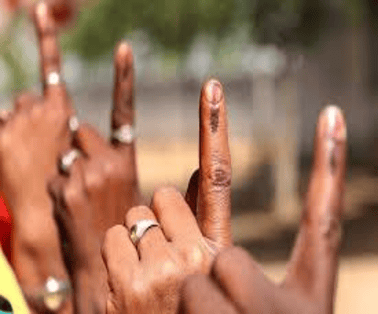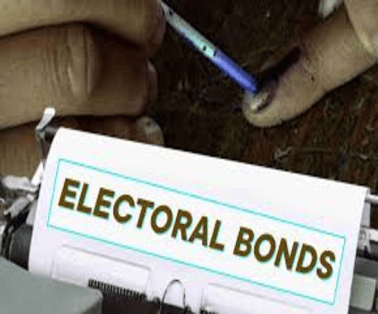n a significant development from Gujarat, the BJP candidate from the Surat Lok Sabha constituency has been declared elected unopposed, following the rejection of the Congress candidate’s nomination and withdrawal of all other contestants. This rare occurrence has drawn national attention and highlighted key provisions under the Representation of People Act 1951, which governs elections in India.
Key Developments in the Surat Lok Sabha Election
- The candidate of the Congress party for the Surat constituency, Nilesh Kumbhani had filed three sets of nomination papers.
- The proposers for these three nomination papers were his brother-in-law, nephew and business partner.
- A BJP worker objected to Mr. Kumbhani’s nomination alleging that the signatures of his proposers were not genuine.
- The RO also received affidavits from the proposers claiming that they had not signed the nomination papers of the candidate.
- He sought reply/clarification from the candidate within a day on the objections raised. As the proposers could not be produced before the RO within the stipulated time for scrutiny, all three sets of nomination papers were rejected.
- The election rules allow for a substitute candidate to be fielded by a political party. The nomination of this substitute candidate would be accepted if the nomination of the original candidate is rejected.
- In this case, the Congress party had fielded Suresh Padsala as its substitute candidate. However, the nomination paper of the substitute candidate was also rejected for the same reason, that is of the proposer’s signature not being genuine.
- The other nominations were either rejected or withdrawn paving the way for BJP candidate Mukesh Dalal to be declared winner.
Understanding the Legal Framework: Representation of People Act 1951
Valid Nomination: Section 33
Under Section 33 of the Representation of People Act 1951:
- Any elector aged 25 or above is eligible to contest Lok Sabha elections.
- Candidates of recognized political parties need one proposer from the constituency.
- Candidates from unrecognized parties or independents require ten proposers.
- A candidate can submit up to four nomination papers to safeguard against rejection due to procedural errors.
Scrutiny and Rejection: Section 36
According to Section 36 of the Act:
- The RO must ensure that any substantial defect, such as fake or forged signatures, can lead to rejection of the nomination.
- In this case, the RO’s decision was based on evidence-backed affidavits from the proposers
What Happens in Uncontested Elections?
- Section 53 (3) of the RPA, 1951 deals with the procedure in uncontested elections.
- According to this provision, if the number of such candidates is less than the number of seats to be filled, the RO shall forthwith declare all such candidates to be elected.
- The RO’s actions are governed by Section 33 of the Act, which pertains to the presentation of nomination papers and requirements for a valid nomination.
What Is The Legal Recourse?
- There have been at least 35 candidates who have been elected unopposed to the Lok Sabha. Majority of them were in the first two decades after independence with the last being in 2012.
- Here, the Congress party has alleged that the proposers were coerced to backtrack on their signatures.
- However, it is unlikely that the EC would act on this request as Article 329(b) of the Constitution read with RP Act provides that no election shall be called into question except by an election petition before the concerned High Court.
- One of the grounds on which such an election petition can be filed is improper rejection of nomination papers. Hence, the legal recourse available is to file an election petition in the Gujarat High Court.
- The RP Act provides that High Courts shall endeavour to conclude such trials within six months, which has mostly not been followed in the past. Speedy disposal of election petitions would be a step in the right direction
Notable Uncontested Elections in Indian History
- There have been at least 35 occurrences of candidates securing victory in Lok Sabha elections without facing any opposition since 1951.
- Notable personalities such as Y.B. Chavan, Farooq Abdullah, Hare Krishna Mahtab, T.T. Krishnamachari, P.M. Sayeed, and S.C. Jamir have ascended to the Lok Sabha without contesting against any opponents.
- The Congress party has had the highest number of candidates elected unopposed, and particular constituencies like Sikkim and Srinagar have witnessed multiple instances of uncontested elections.
- While the majority of candidates have won unopposed in regular elections, there have been instances, like Dimple Yadav’s victory in the Kannauj Lok Sabha by-poll in 2012, where candidates have emerged triumphant without facing any competition even in by-polls.
Concerns with Uncontested Victories
- Uncontested victories raise questions about the legality of declaring candidates elected without a competitive electoral process, potentially undermining the democratic principle of representation.
- Uncontested elections limit voter engagement and choice, depriving constituents of the opportunity to express their preferences through the electoral process.
- This process does not allow electors to exercise the None of the Above (NOTA) option, which was introduced to “enlighten” political parties and candidates about voters’ perceptions.
- Uncontested elections tend to perpetuate the existing status quo and discourage new candidates from entering the fray, resulting in a dearth of fresh perspectives and vigour
- The perception of predetermined outcomes in uncontested elections may lead to decreased voter engagement and a reluctance to participate in future electoral processes. This cycle of voter apathy can exacerbate the problem.
Conclusion
The Surat Lok Sabha case is a rare yet legally sound instance of a candidate being elected unopposed under the Representation of People Act 1951. It underscores the importance of procedural compliance, while also highlighting the need for stronger safeguards to prevent misuse of electoral provisions. As the matter may proceed to judicial scrutiny, it serves as a key reference point for election law and democratic ethics in India.
To Download Monthly Current Affairs PDF Click here
Click here to get a free demo
Discover all about CLAT Exam



